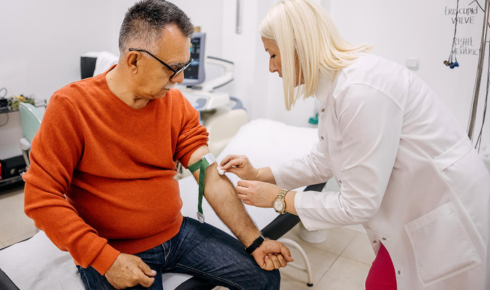Introduction
The clinical trial ecosystem continues to witness remarkable progress, with biopharmaceutical leaders advancing treatments that could redefine patient outcomes in ophthalmology, oncology, and immunotherapy.
Recent coverage from Clinical Trial Vanguard highlights three key developments — the initiation of EyePoint’s pivotal Phase 3 trial, expanding opportunities in the lung cancer ADC market, and the promising future of OX40-targeted therapies.
Together, these breakthroughs underscore the growing synergy between precision medicine, innovative delivery systems, and immune modulation in shaping the next frontier of healthcare.
1. EyePoint Begins Pivotal Phase 3 Trial for DuraVYU™ in Diabetic Macular Edema (DME)
EyePoint Pharmaceuticals has announced the launch of its pivotal Phase 3 clinical trial for DuraVYU™, a potential game-changer in the treatment of diabetic macular edema (DME) — a leading cause of vision loss among diabetic patients.
DuraVYU™ utilizes EyePoint’s proprietary bioerodible Durasert® technology, designed to deliver sustained drug release with precision and consistency over extended periods. The trial aims to evaluate the efficacy, safety, and durability of this long-acting therapy compared to existing treatments that often require frequent injections.
If successful, DuraVYU™ could revolutionize retinal disease management, offering patients a more convenient and effective solution that minimizes treatment burden while maintaining vision stability.
2. Surging Lung Cancer ADC Market: FDA Trials and Future Opportunities
The lung cancer antibody-drug conjugate (ADC) market is poised for rapid growth, with multiple ongoing FDA clinical trials exploring novel ADC combinations and indications. According to Clinical Trial Vanguard’s analysis, this surge is driven by the success of first-generation ADCs and the emergence of advanced linker technologies that enhance tumor-specific targeting.
ADCs combine the precision of monoclonal antibodies with the potency of cytotoxic drugs, creating a powerful class of targeted therapies for lung cancer.
As biotech companies invest in next-gen ADC platforms, the market outlook through 2030 suggests exponential growth, with expanding opportunities in non-small cell lung cancer (NSCLC) and HER2-low expression subtypes.
This growing clinical activity reflects the broader oncology trend toward combination strategies and biomarker-driven trials, fueling hope for improved survival outcomes.
3. OX40-Targeted Therapy Trials and Market Insights Through 2026
The field of immuno-oncology continues to evolve with promising developments around OX40-targeted therapies — a key pathway in activating T-cell–mediated immune responses against cancer.
As detailed in Clinical Trial Vanguard’s market insight, several biopharma companies are advancing OX40 agonists through early- to mid-stage clinical trials, exploring their potential in combination with PD-1/PD-L1 inhibitors.
The report highlights significant market growth opportunities through 2026, driven by expanding research pipelines, increased investment in immune checkpoint biology, and encouraging clinical data supporting safety and efficacy.
OX40-targeted treatments could soon become a cornerstone of next-generation immunotherapy, offering new hope for patients resistant to conventional approaches.
Conclusion: Innovation Across Therapeutic Frontiers
From vision restoration to targeted oncology and immune system activation, the current wave of clinical research signals a transformative phase in global healthcare innovation.
The integration of biologic precision, advanced delivery systems, and immune modulation is accelerating the shift toward more effective, durable, and patient-friendly therapies.







